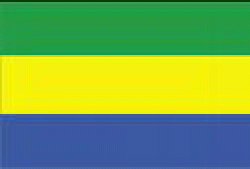
Published date
17 August 1960
On 17 August 1960 Gabon, the last of the four territories, which had formed French Equatorial Africa, achieved independence.
Gabriel LÁƒÂƒ©on M'Ba become the new president, he was an autocratic ruler.
Autocratic regimes continued to rule Gabon after she achieved independence, but early in the 1990s Gabon introduced a multiparty system and a new constitution that allowed for a more transparent electoral process and institutional reforms.
Gabon was first explored by the Portuguese navigator Diego Cam in the 15th century. In 1472, the Portuguese explorers encountered the mouth of the Como River and named it "Rio de Gabao," river of Gabon, which later became the name of the country. The Dutch began arriving in 1593, and the French in 1630. In 1839, the French founded their first settlement on the left bank of the Gabon estuary and gradually occupied the hinterland during the second half of the 19th century. The land became a French territory in 1888 and an autonomous republic within the French Union after World War II.
Related Links:
A timeline of African Independence history
References
Alistair Boddy-Evans, (2012), 'This Day in History - Gabon Achieves Independence'. from African History [Online], Available at: africanhistory.about.com, [Accessed: 08 August 2013]|Info Please Website, 'Gabon', Avaialble at: www.infoplease.com, [Accessed: 08 August 2013]